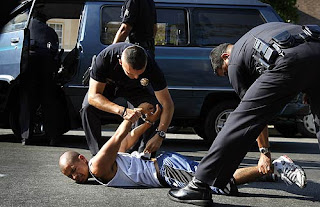http://www.enotes.com/forensic-science/criminal-profiling
Profiling is a very efficient way to catch criminals according to an unknown writer. Criminal profiling uses both physical evidence and victims as a way to study the behaviour of the criminal. Also from collected evidence, the profiler can deduce possible hiding place and acts as guide for interrogation of possible suspects. Moreover, profilers unravelled three types of offenders: organized, disorganized, and mixed of the both types. In addition, signatures of the suspect are always left at the crime scene.
http://www.ehow.com/info_8117819_criminal-profiling-pros-cons.html
According to Justin Beach, profiling is a very effective tool to capture killers by studying the criminal mind. Also by determining the evidence at the crime scene, profilers can give physical profile. In addition, victims can give profilers information about the psychological state of the perpetrator. However stereotyping is not a good idea to be mixed in the profile.
http://www.ehow.com/about_5117524_criminal-profiling-amp-its-purpose.html
Jennifer Escalona stated that the use of profiling enables the police to track down and catch criminals more efficiently. She said that using the crime scenes and interviewing other offenders, profilers can narrow down the suspects. However, not all profilers agree with each others. Moreover some profilers consider profiling as an art rather than science.
http://helpingpsychology.com/forensic-psychology-and-criminal-profiling-catching-a-serial-killer
According to Brittany through previously caught serial killers, criminal profilers are able to study their background and use this as a way to catch similar offenders. criminal profiling is a four stage investigative tool used to profiler perpetrator. Also serial killers are categorized into three different types: mixed, disorganized, or organized. However these profiles can be misinterpreted causing other offenders to be ignored.
http://www.criminaljusticeprograms.com/specialty/criminal-profiler/
According to Keith J. Jones, criminal profilers build their profile through methodical investigation of the crime scene and evidence that it holds. Another way to build the profile is to talk to the victims and witnesses. In addition, profilers must go through old cases that have similar M.O.(modus operandi).


